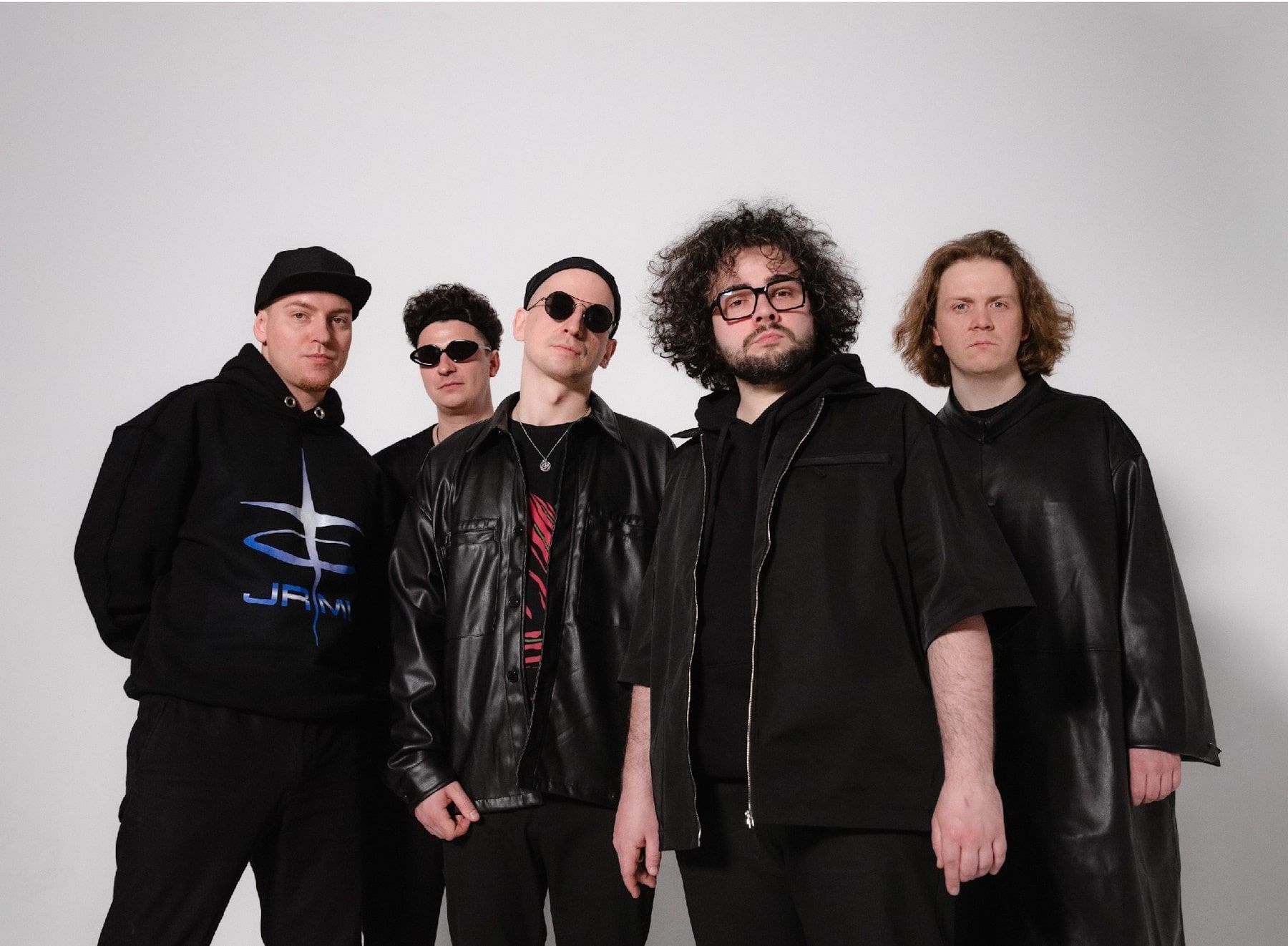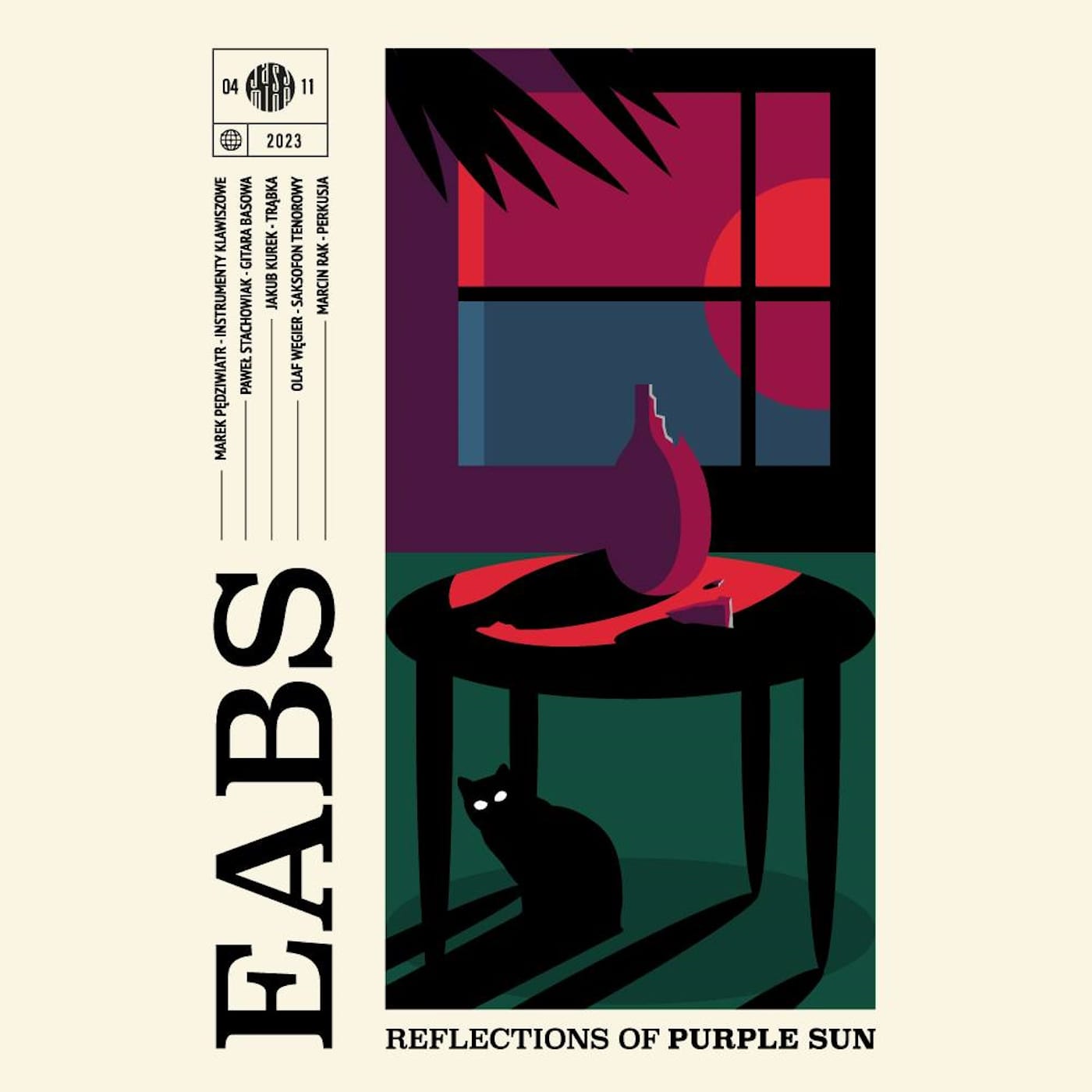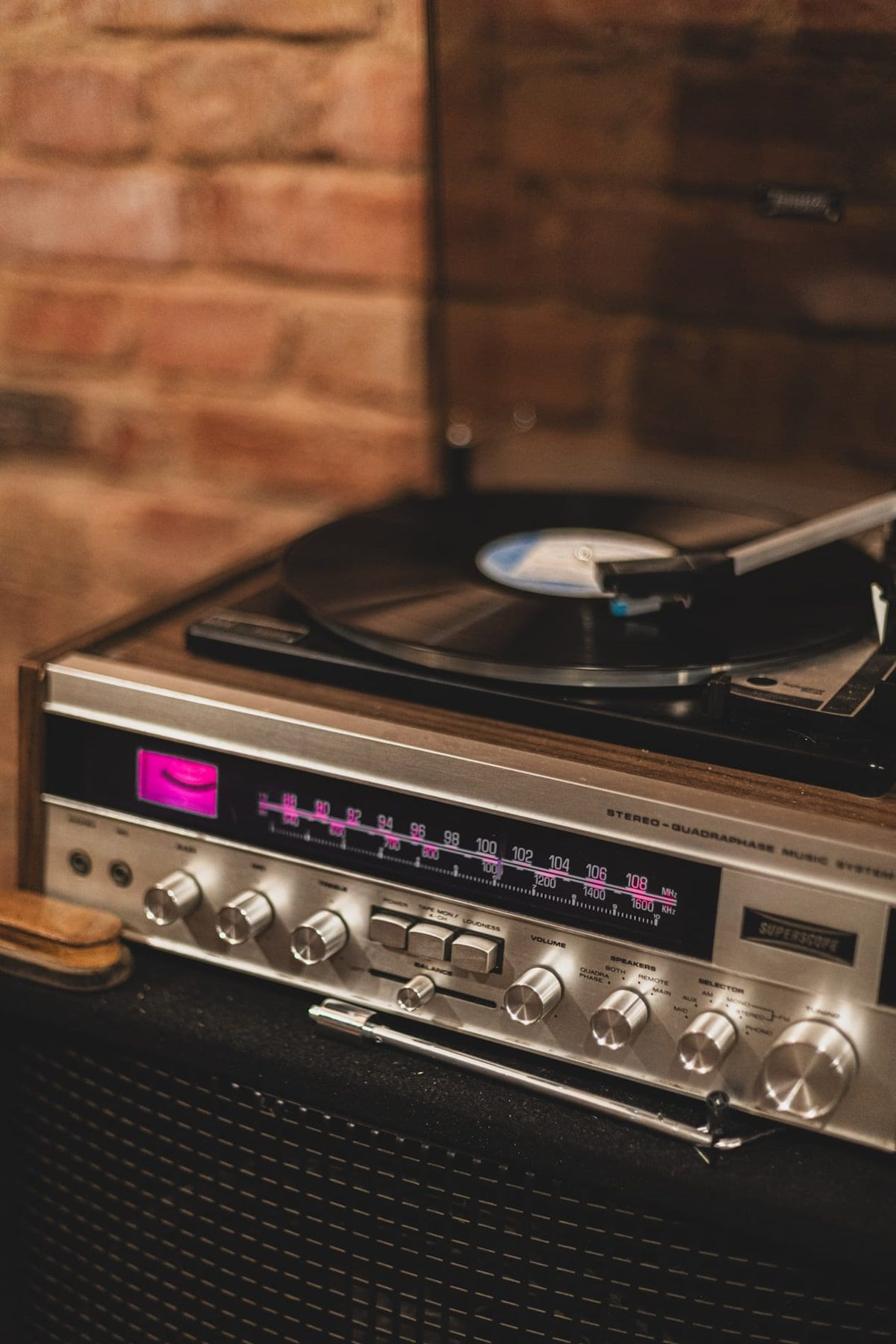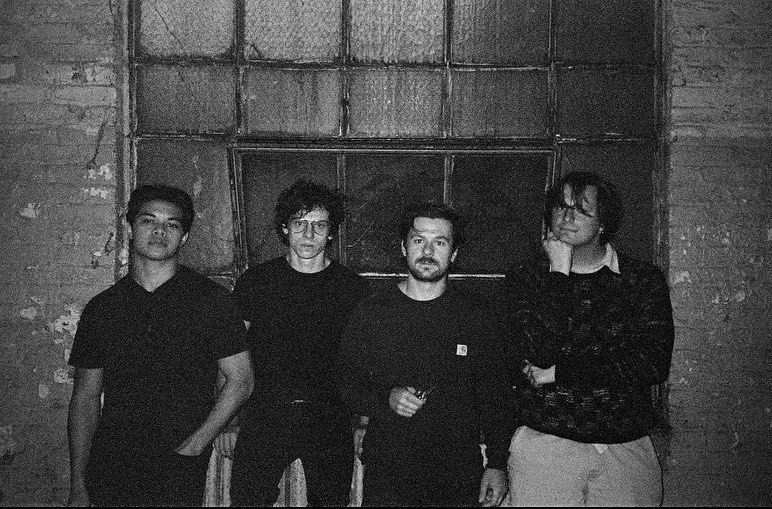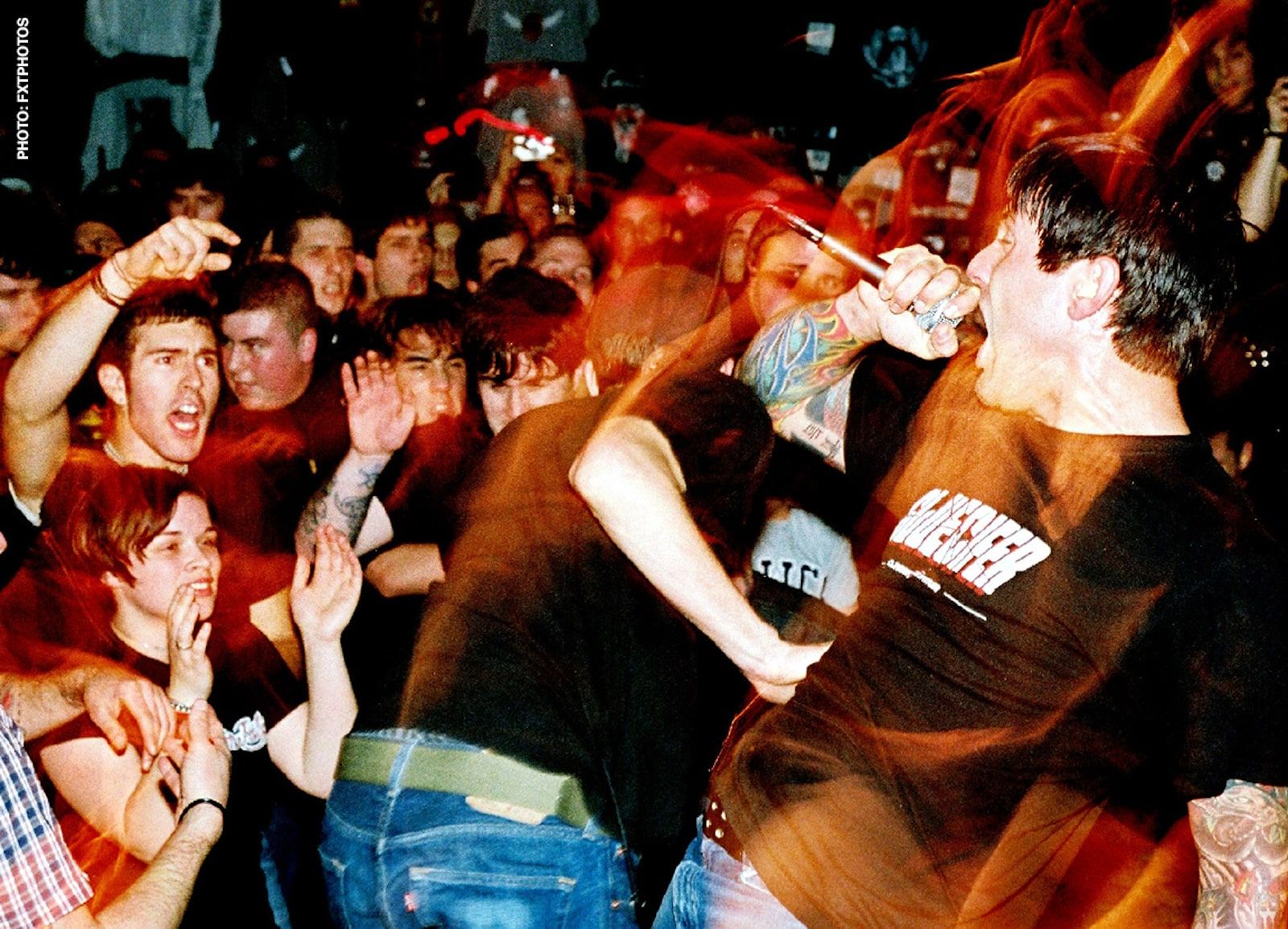In the heart of Warsaw’s vibrant jazz scene, nestled within an intimate venue, the Wrocław-based band EABS recently delivered a performance that reverberated with the soul of jazz and the spirit of innovation. Known for their dynamic blend of traditional jazz with modern sensibilities, EABS, alongside their recent collaboration with the Pakistani act Jaubi, has emerged as a prominent voice in the Polish jazz landscape.
Their latest project, “In Search of a Better Tomorrow,” marks a unique fusion of Polish and Pakistani musical traditions, encapsulating themes of hope and resilience amidst global upheaval. This album, with its deep cultural roots and exploration of diverse musical genres, stands as a testament to EABS’s commitment to pushing the boundaries of jazz. Their ability to intertwine the melancholic melodies of Slavic spirits with the spiritual jazz rhythms reflects not only their musical versatility but also their socio-political awareness.
The recent concert in Warsaw, featuring their new material “Reflections Of Purple Sun,” a recreation of Tomasz Stańko’s quintet album, was more than a mere performance; it was a journey through emotional landscapes and a homage to the jazz legend. This event also set the stage for an in-depth conversation with the band, where they shared insights into their experiences at the venue, their perspectives on the evolution of jazz in Poland, and their unique approach to music. We are pleased to give you our full interview below.
Delving into their creative process and the philosophies that guide their artistic endeavors, EABS sheds light on how they balance respect for jazz traditions with their progressive explorations. Their collaborative work with Jaubi, in particular, highlights their ability to blend diverse cultural influences seamlessly, creating a sound that is both innovative and deeply rooted in jazz heritage.
EABS’s influence extends beyond their music; they play a crucial role in bridging the generational gap in the jazz community, attracting a younger audience to the genre. Their forward-thinking approach and willingness to experiment with new sounds provide a glimpse into the future of jazz, both in Poland and internationally.
The band’s reflections on their recent performance, along with their thoughts on the current state and future trajectory of jazz, offer a captivating insight into the minds of these contemporary jazz pioneers. Their story is one of cultural exchange, musical evolution, and the unifying power of art in challenging times.
Read our full conversation with Marek Pędziwiatr, a multifaceted artist, known as a composer, arranger, and pianist. He’s a member of EABS and the quartet Błoto. Pędziwiatr also ventured into a solo career under the pseudonym Latarnik. His artistic essence is a blend of diverse influences and a deep-rooted connection to music.
Reflecting on your recent concert at Jassmine in Warsaw, could you share your experiences and emotions from that night? How does performing in such a venue resonate with your artistic sensibilities?
It was a very special gig by all means. I feel like we fulfilled our mission from four years ago when we were working on our album Slavic Spirits inspired by the legends like Czeslaw Niemen, Skaldowie, Komeda or Tomasz Stanko.
I remember our dilemma back then, whether to add to this repertoire our rework of one of Stanko’s compositions from the legendary Purple Sun album or not.
View this post on Instagram
Ultimately, we decided to record our original compositions only. This year we recorded our sixth album called “Reflections of Purple Sun”, reflecting compositions from the “Purple Sun”. So this night in Jassmine club it was a first time we blended “Slavic Spirits” with unreleased yet “Reflections of Purple Sun”. We felt like we were creating some magical fix on stage. Each moment came out as a surprise both for the audience and us, musicians.
View this post on Instagram
In your perspective, how does the jazz club scene in Warsaw, and more broadly in Poland, contribute to the evolution and expression of jazz music today?
My heart starts beating faster when I see how Polish jazz scene grows without complexes. There are more and more young jazz cats who continue our mission with their own concept. Many of them were inspired by us. And we were not first.
We came after Robotobibok, Skalpel or Miłość. Right now we have Kosmonauci, Product May Contain, Immortal Onion, Klawo, Kuba Więcek, Kamil Piotrowicz, Siema Ziemia and many more.
It feels like this spirit is still passed down from generation to generation. We all represent the fresh approach not only to jazz but to the music in general. So we are not only appreciated by jazz geeks.
We think broadly, creating new traditions with deep respect to old traditions.
What is more, to be spotted in jazz scene today, there are no room for copies. Each artist I’ve mentioned are working on their original sound and concept without being ashamed of where they come from. We are exotic, and that’s beautiful. That is the major tool to break the “iron curtain”.
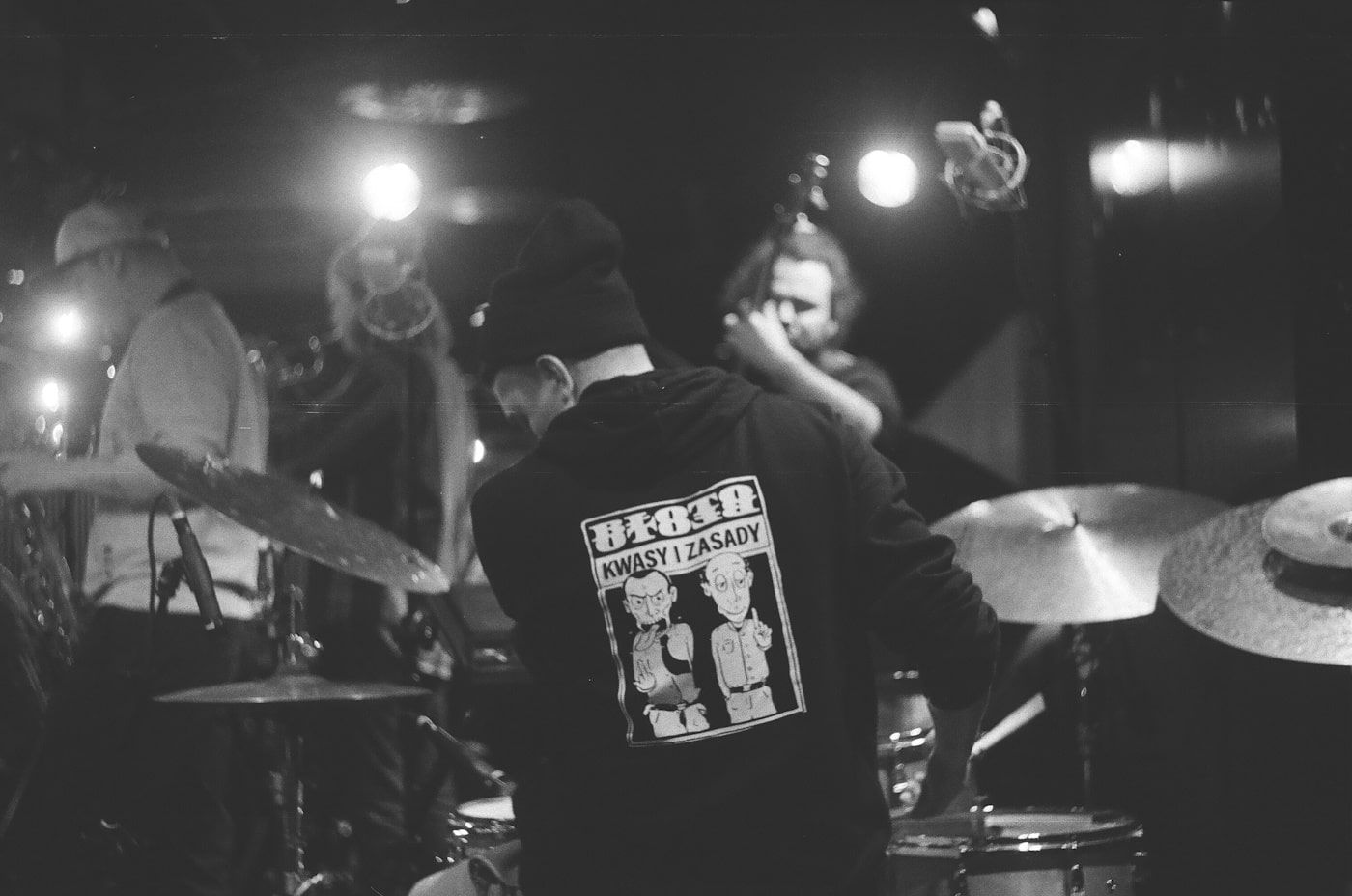
As connoisseurs of jazz venues, could you recommend a few hidden gems across Poland that embody the soul of jazz and are perhaps lesser-known to the wider audience?
Nowadays, every place can be a jazz venue. It’s all about the people coming together.
We performed in lots of weird places from flea market in Wrzeszcz to abandoned airplane hangar in Jelenia Góra. We love such an unusual venues. Sadly, the covid era was a hard time for small clubs.
What is more, not only the covid but the global inflation so many places were shut down because of increasing renting prices. Although some of them survived.
I can recommend winyle.fm – the vinyl store in Szczecin owned by a charming person Dariusz Startek. You can buy vinyls, have a great conversations about the music and watch and listen to some unusual gigs.
Could you recount your experiences at the 65th Jazz Jamboree, focusing on the moments that were particularly impactful or challenging for you as a band?
The major challange was the fact that I play with EABS and Błoto, what is more, Wuja HZG is also playing in these bands + Siema Ziemia + he performed as a special guest with USO, so he had four gigs one night in the same venue.
Overall, that was a very special night. It was the document of jazz today, the jazz from beat generation. I will never forget our final show with Błoto and Tony Sauna on the mic. We started as usual, then, all of a sudden everything went out of control. In the end, it was a weird mixture of house, pop, rap and avant-garde.
“Reflections of Purple Sun” is a homage to the legacy of Tomasz Stańko. How did you navigate the complexities of reinterpreting such an iconic album while infusing it with EABS’s unique sound?
The answer is within your question. All we had to do was letting it be EABS. Although, this material seems complex because of the Stanko’s Quartet improvisational skills, but the mere skeleton is an easy structure. It would be backbreaking work trying to get close to the sound of the originals. We’ve got our own paths and experience so we took the skeleton and rebuilt the fresh body as good as we could.
What is more, thanks to Stanko’s daughter Ania we recorded the whole album in his apartment which was in the condition as if he left it yesterday.
The experience of recording “Purple Sun” in the intimate space of Tomasz Stańko’s apartment, and on his trumpet, must have been profound. How did this setting and instrument impact the emotional and creative depth of your interpretation?
It’s a magical feeling that we managed to capture the air and aura of this place. I believe Stanko would be proud of us. I remember asking Jakub Kurek about his impressions of playing on Stanko’s trumpet after the recording session. He told me that each instrument, especially the blow ones, bear marks of its owner. Somehow, Kuba felt the way that Tomasz was playing this trumpet, his own paths.
So it felt like Stanko gave him the lesson from the another world. And the medium was this trumpet. Amazing, isn’t it? I had a similar weird feeling playing on his house piano, wondering, how many times Tomasz was sitting and composing on it and how many special guests were playing on this old heavy piano.
The ethos of EABS revolves around the intriguing concept of “reconstruction from deconstruction.” Can you elucidate how this philosophy has guided and transformed your musical journey over the years?
Reconstruction from deconstruction is a term which can deconstruct and reconstruct as well. It’s kind of a circle.
We started with reconstructing hip-hop beats, eg. Pete Rock which were deconstructions of original compositions, eg. Ahmad Jamal. Then we did the same thing with Komeda.
I made a deconstruction sampling some of his less known compositions making beats as arrangements, then I went to rehearsal room and we reconstructed my deconstructions translating these beats into live, organic, fluid performance.
According to our original compositions, we rarely use sheet music. The construction is the concept, deconstruction is the beat with the composition, and finally, the live reconstruction.
Then we record it and next step, again, we still reconstruct on our gigs. It goes on and on.
Your collaborative project with Jaubi represents a fusion of diverse cultural and musical heritages. Could you delve into how these varied influences shaped the creative journey and final sound of “In Search of a Better Tomorrow”?
Initially I was afraid of “In Search of a Better Tomorrow”. Although, the compositions were ready before the recording session, we never met before to rehearse as two bands from different civilizations.
So when we finally met in the Studio Monochromy in the heart of a beautiful landscape in Kotlina Kłodzka that was a stressful moment for me. But minute by minute we found out that everybody’s happy and ready to cooperate. So we set up. I was wondering what to record first, I chose my composition called “Strange Love”, because it was easy and energetic.
So I taught each player their parts without sheet music and when we recorded first take I felt like I don’t need to worry about nothing anymore.
On the last day of recording just as we finished the final song someone went in the room and shouted: “Guys! Come outside! You need to see it!”. So we all went outside and there was a beautiful rainbow all over the land. I will never forget this moment.
EABS has played a pivotal role in reinvigorating the Polish jazz scene, particularly among younger audiences. What key elements, in your view, have been instrumental in bridging the generational gap and revitalizing the jazz genre for contemporary listeners?
As I mentioned, we represent the beat generation with respect to tradition. That is the sound of the future and that’s way this music affects young people and all generations.
View this post on Instagram
This is the music for the people, to make them move, not only sit and listen.
Lately, we were thinking whether to still call it jazz or not.
This is the music for the people. Live and direct.
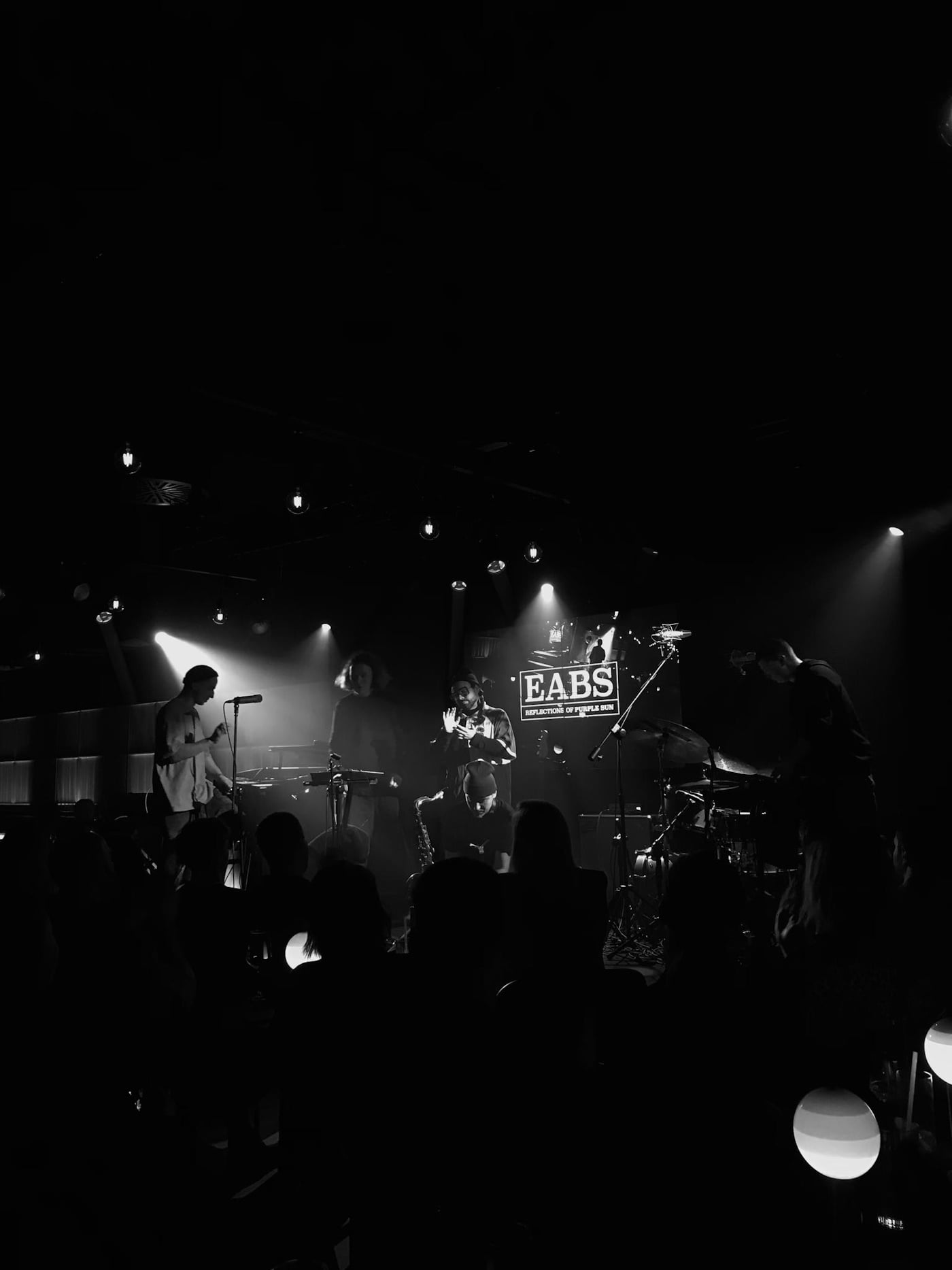
Given your experimental and boundary-pushing approach, how do you envision the trajectory of jazz, both in Poland and internationally, as we move forward into a new era of musical exploration?
We are entering the AI era. On the one hand, there are so many tools now that may help us to be faster and more effective as a skilled musicians.
On the other hand, thanks to these tools everyone can consider himself a producer/musician, so sometimes you don’t know who to trust.
I think sooner or later, when the shit hits the fan, true musicians will totally free themselves from any digital tools to hack the AI.
I believe that the future music, including jazz, will be full organic.
More about Marek:
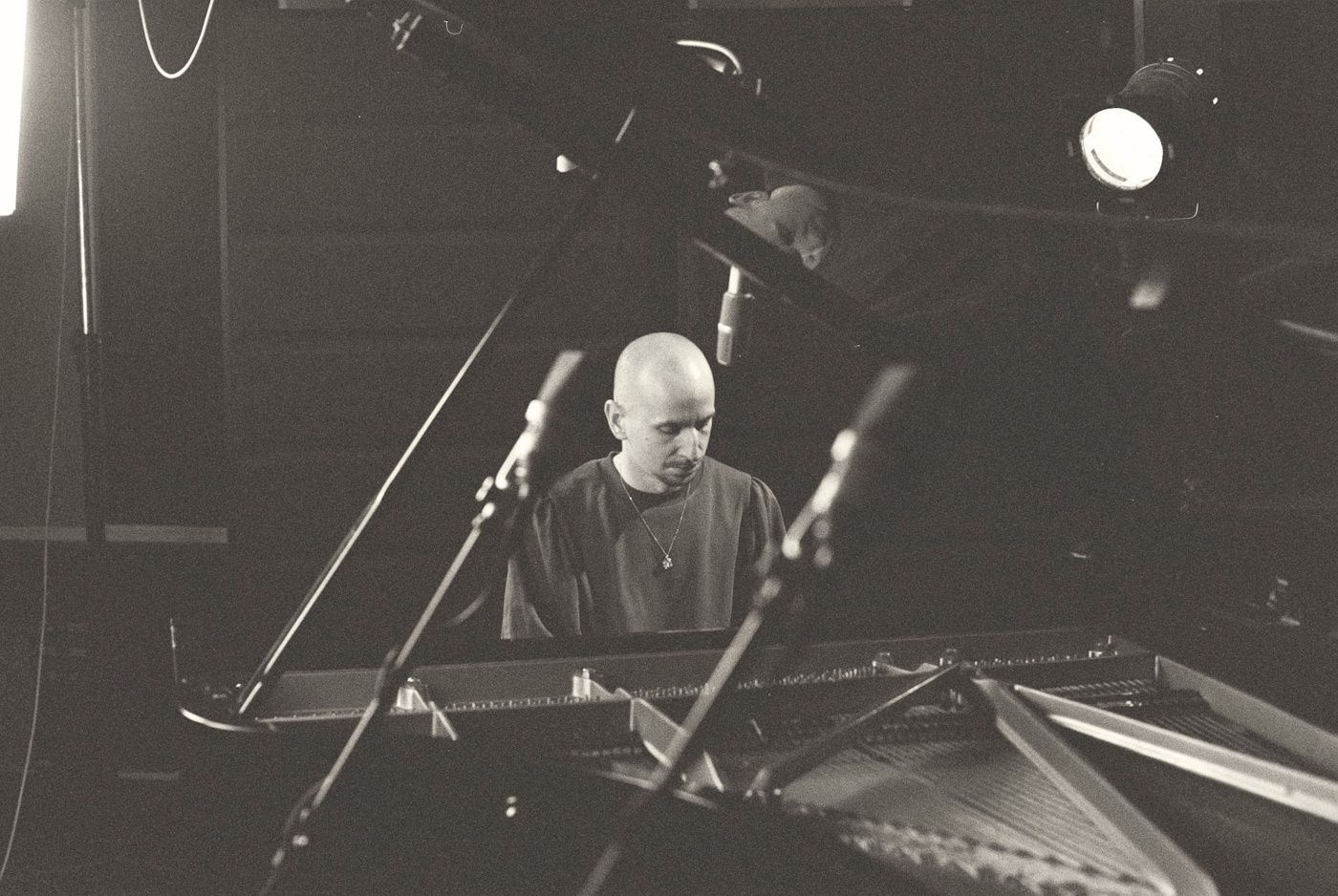
Born in 1987 in Świnoujście, Marek’s musical journey began early. His grandfather was a multi-instrumentalist who ran clubs on the Pomorze coast, and his uncle played the trombone in various jazz bands. At the age of seven, he enrolled in a state music school, where his piano teacher, Anna Kask, played a pivotal role in nurturing his creative spirit. Even then, Marek felt a subconscious need for artistic freedom.
In 1994, a significant turning point occurred when his cousin introduced him to hip-hop through a VHS tape featuring Cypress Hill’s “Lick a Shot.” This exposure sparked his fascination with hip-hop’s raw and gritty sound, setting him on a path of exploration and artistic discovery.
Marek’s affinity for hip-hop grew deeper over the years, despite facing a life-changing obstacle. In 1997, at the age of ten, he had to leave music school due to a cancer diagnosis. The experience of confronting mortality at such a young age left a profound impact on him. His solace during that challenging period was found in two suitcases filled with cassette tapes. These tapes became his world, and he immersed himself in American rap, listening to artists like DJ Muggs, EPMD, Method Man, Public Enemy, Beastie Boys, and Ice-T. The music became his sanctuary during a turbulent time.
His passion for hip-hop evolved further when his cousin introduced him to “acid jazz” by playing a track from the London-based collective Bubbatunes, featuring a loop from Herbie Hancock’s “Calypso.” This genre expansion opened his ears to new musical horizons, with jazz becoming a significant point of interest. Jazz’s fusion with hip-hop resonated with him deeply.
Despite not returning to music school after recovering from his illness, Marek continued to explore music, experimenting with hip-hop beats alongside his brother. His search for jazz samples led him to dive deeper into the genre, trying to replicate the sounds he heard on his home piano. He also attended various workshops and received guidance from pianist Tomasz Żyrmont, who introduced him to the intricacies of playing jazz. This period was instrumental in shaping his musical identity.
Marek’s journey continued as he pursued studies in English philology, initially doubting that music could become his profession. However, he eventually enrolled in the Academy of Music in Katowice. There, he learned to create music that surprised even himself, emphasizing the importance of self-discovery through music. His unique style and commitment to nurturing it were reinforced during his studies.
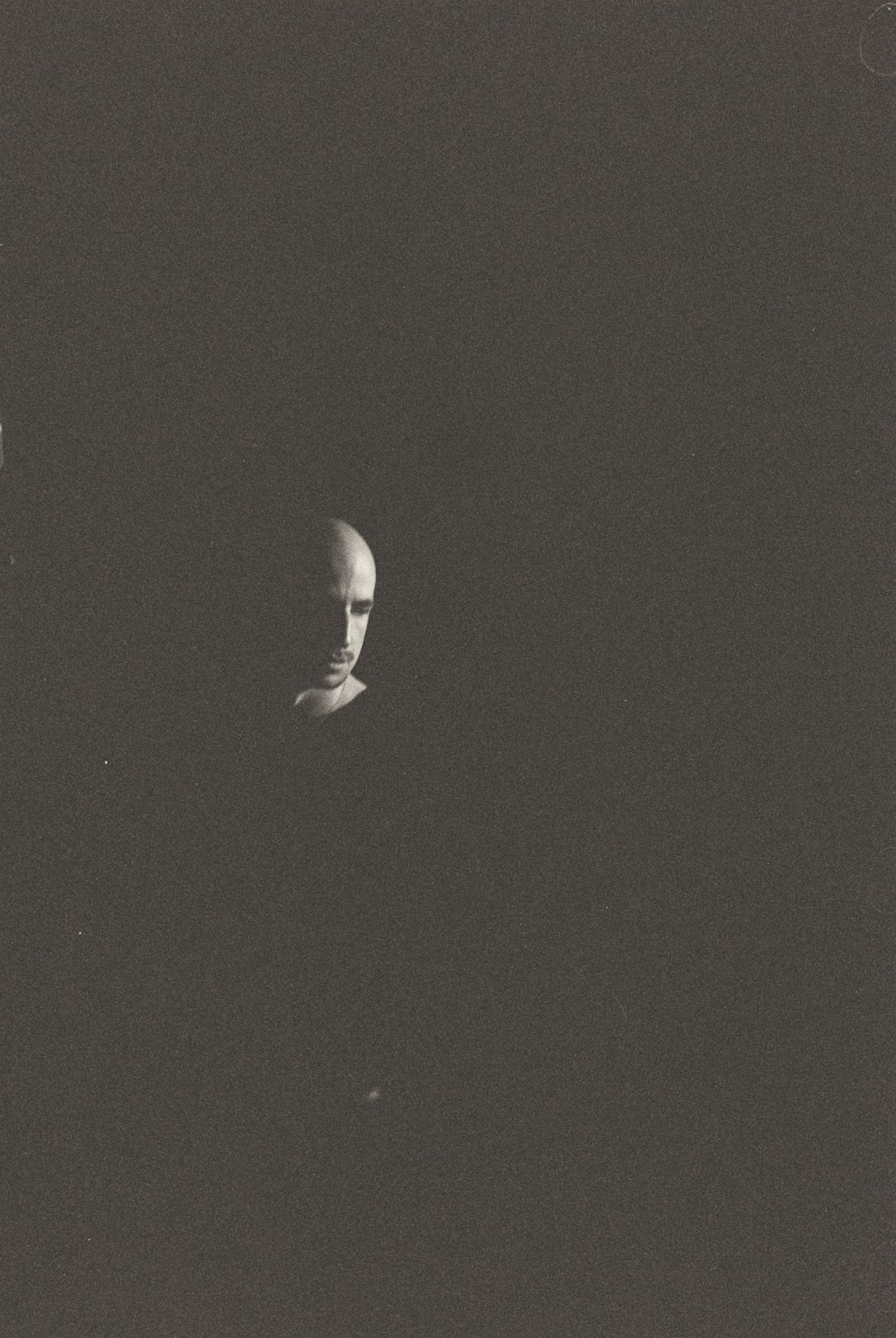
Notably, Marek Pędziwiatr decided to end his formal education after earning his bachelor’s degree. His decision was influenced by the vibrant musical scene that had developed in Wrocław, where EABS played a central role. EABS, a jazz septet rooted in hip-hop, celebrated its hiphop origins and frequently collaborated with rappers. Although Marek had stopped rapping himself, the influence of hip-hop remained a part of his musical DNA.
Marek’s deep-seated love for music led him to form the group Błoto, which emerged from a spontaneous improvisation session during a break on tour. In Błoto, where he performs under the pseudonym Latarnik, Marek explores hip-hop rhythms and funky grooves more extensively.
His artistic endeavors extend beyond Poland’s borders, as he collaborated with the Pakistani group Jaubi, contributing to their album “Nafs at Peace.” Marek’s versatility as a musician knows no bounds, as he continues to evolve and explore new musical frontiers.
Whether in EABS, Błoto, or his solo work, Marek Pędziwiatr remains a musical visionary, driven by a passion for storytelling through sound and a commitment to artistic honesty.
Want to keep the beat going?
IDIOTEQ is a one-man DIY operation, tirelessly spotlighting the local cultural scenes and independent bands that often go unreported elsewhere. Born in the early 00s, this platform has been committed to giving hard-working artists the high-quality coverage they truly deserve.
No ads, no distractions—just pure inspiration and a genuine focus on independent artists and their stories.
Please consider helping keep IDIOTEQ ad-free and in tune with the indie scene by donating today.
DONATE via PayPal 𝗈𝗋 SUPPORT via Patreon
100% of the funds collected go toward maintaining and improving this magazine. Every contribution, however big or small, is super valuable.
Your support ensures that we continue to be a place where you can discover, learn, and get inspired, without any advertising noise. Thank you for being a part of this musical journey.



